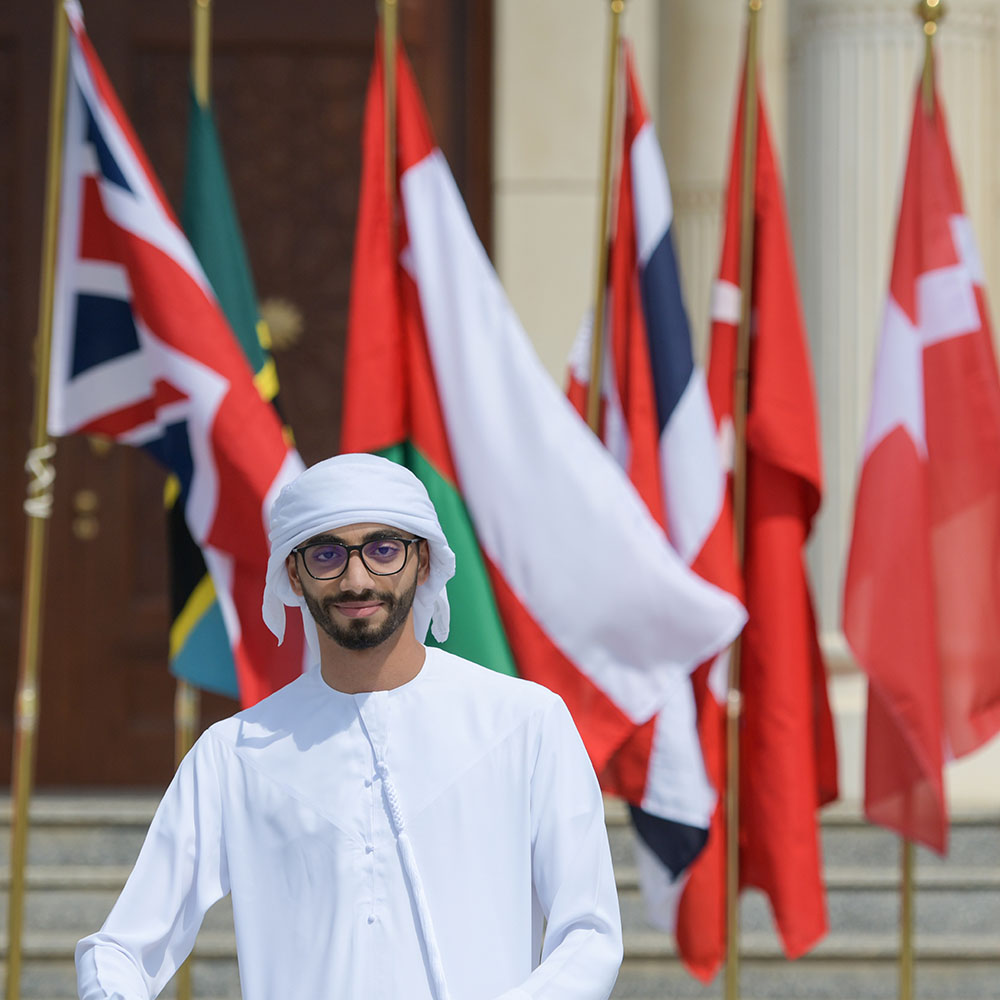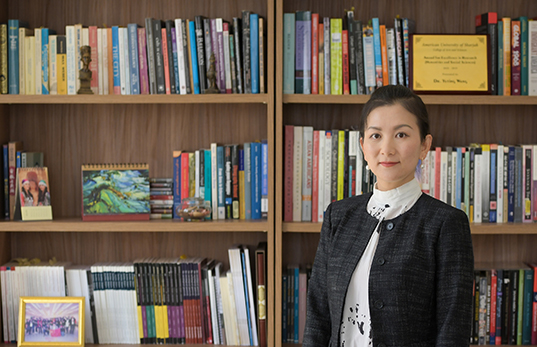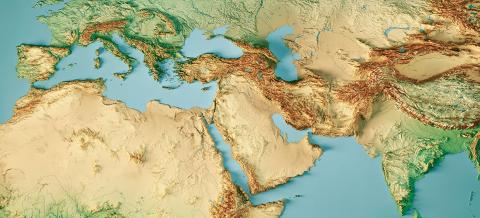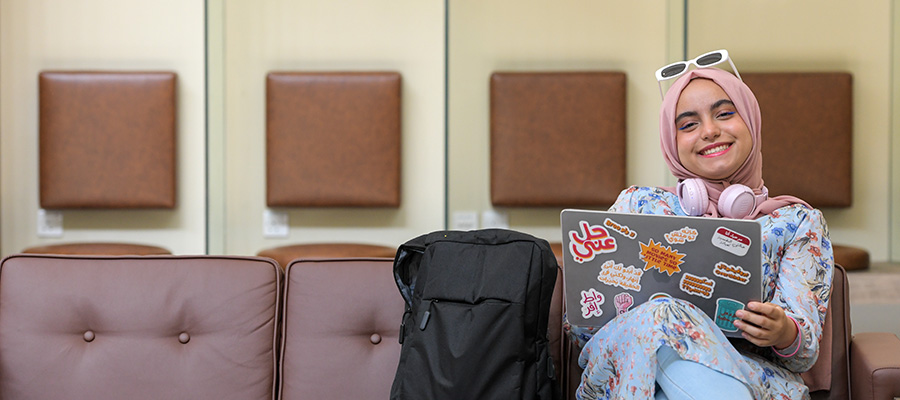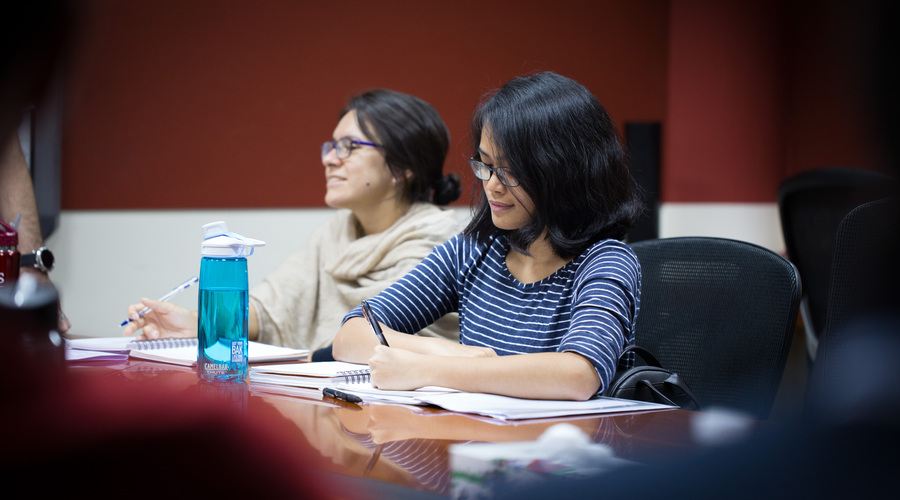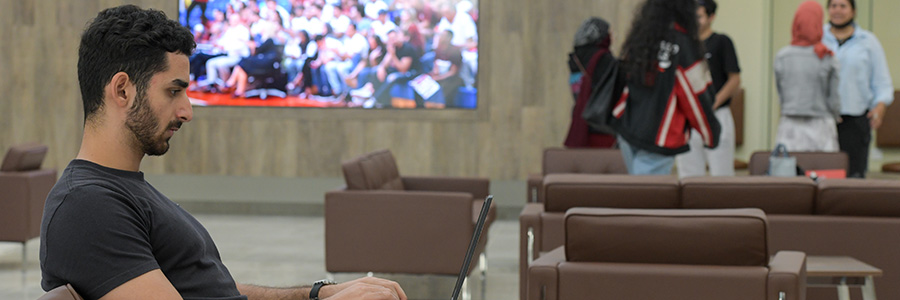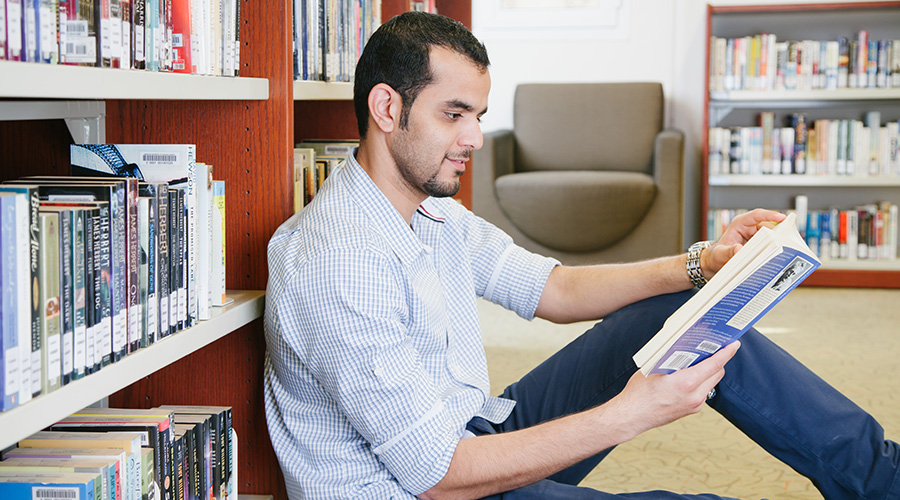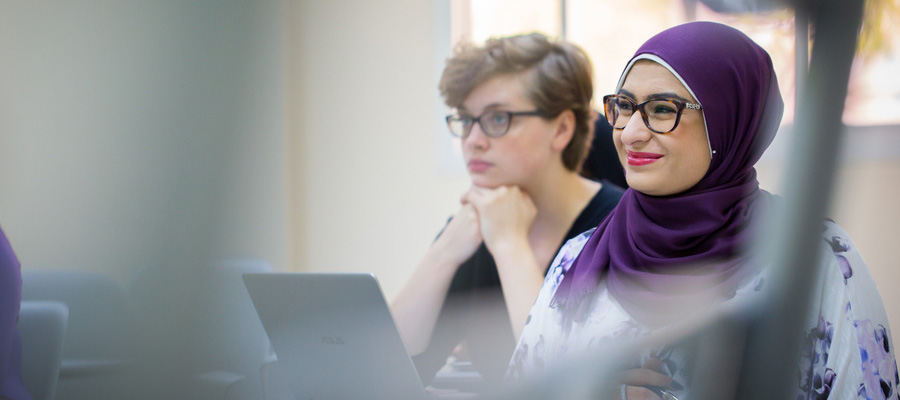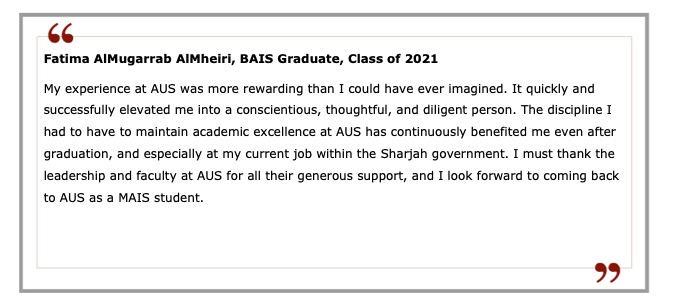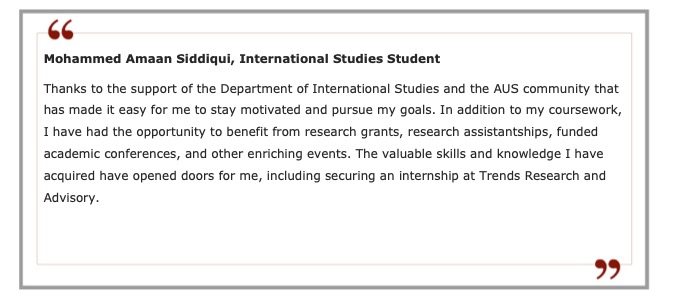Head of Department
Programs
Faculty
- 1 of 6
- next ›
Student Organizations
The International Studies program at AUS is known across the campus for its vibrant and close-knit student community. Playing a large part in achieving this strong sense of community are the student organizations.
- AUS Model United Nations
The Department of International Studies (INS) proudly sponsors the AUS Model United Nations (MUN). Run under the supervision of INS faculty members, the event attracts delegates from local and regional high schools as well as teams and individual participants from India, Pakistan and even the United Kingdom. United Nations delegates discuss issues ranging from nuclear proliferation to global food policies. Founded in 2007, the annual gathering has grown from 180 delegates in 2014 to 1,200 in the Spring 2023.
For more information on AUS MUN, please contact [email protected]
- International Studies Student Association
Every semester, INSA hosts a variety of interesting and engaging events that offer students insight on a range of topics, from current events to scholarly matters. Through INSA-hosted talks, students get to hear from expert speakers such as government officials, leading academics, motivational speakers and more. On a broader scale, INSA organizes annual conferences that tackle timely topics such as climate change and migration, drawing student attendees from around the world.
Recognizing the value of hands-on experience, INSA hosts engaging trips that help students learn about various organizations, fields or causes and can even spark their professional interests. One example is the INSA visit to the UAE warehouse of the World Food Programme, the world’s largest humanitarian agency fighting hunger worldwide.
Rounding out each semester is the INSA gala dinner, which celebrates that semester’s graduating class. Attended by faculty and students, INSA’s galas mark this important milestone in students’ lives and reflect the spirit of the tight-knit community that international studies students and faculty members embody.
All international studies majors are automatically members of INSA and can vote for the association’s officers. As the student-led representative arm of the international studies program, INSA elects new board members at the conclusion of every academic year to serve for two-semester terms. INSA is advised by a faculty member from the Department of International Studies.
For more information on INSA, please contact [email protected].
- Student Journal l Inspire
INSpire's mission is to publish exceptional undergraduate research papers written by our students and to provide an easily accessible platform for students. INSpire offers students who wish to pursue a career in academia a unique learning experience in the process of publishing peer-reviewed research. The journal also reflects the interdisciplinarity of the Department of International Studies and the diversity of AUS. All papers that are eligible for publication with INSpire go through a multi-stage peer-review process by our Editorial Board, which is under the supervision of our faculty advisors. At INSpire, faculty advisors ensure that student editors abide by a formal editorial process and only publish papers that meet high-quality standards.
Launched in September 2021, INScription is a monthly department newsletter that provides an informal channel for students and faculty to stay connected with our growing INS community. Each newsletter publishes interviews with selected faculty members and students, features faculty and students’ academic achievements or extracurricular activities, and announces future events.
To submit materials to the newsletter editorial team, please contact Ghazal Hijazi at [email protected].
Research
Given the multidisciplinary nature of the Department of International Studies, our distinct faculty are engaged in a wide range of research projects. Students get the opportunity to participate in research, or assist professors with organization of research information. They also get the chance to contribute independent ideas, co-author papers with professors, and present their work at professional conferences.
Discover our faculty research areas:
- Anthropology
- Pia Anderson: the impact of recent cultural and economic changes from the “Cod Wars” of the 1970s to the impacts of Brexit on fishing communities in the United Kingdom; the changing nature of heritage and sustainability in the Philippines: the growth of knowledge centers in the Gulf Arab states
- Rick Miller: informality & urbanization from below, global south cities, infrastructures, vernacular architecture, interaction of people and their built environment, monuments & memory
- Neha Vora: Immigration, citizenship, identity, and belonging in the Arabian Peninsula; South Asian diasporas; critical Gulf Studies; gender, race, and ethnicity; globalized higher education; Indian Ocean connectivities; anthropology beyond the human.
- History
- Alisher Khaliyarov: Islamic history, Central Asian history, economic history
- James Onley: The history and heritage of the Gulf region, the Gulf’s historical connections with South Asia, archives and archival digitization, and digital humanities
- Vernon Pedersen: History of Communism, Twentieth Century American history, Labor history, Cold War history and the Spanish Civil War.
- Matteo Salvadore: early modern African-European relations, African Diaspora in Europe, slave trade, missionaries in Africa, race and racism
- Sundar Vadlamudi: maritime history, history of South Asia, Indian Ocean trade, merchant networks, maritime labor
- Marco Zuccato: Medieval History; Islamic History; History of Science; History of Medicine; Ancient and Medieval Philosophy; European History.
- Salma Thani (Visiting): Gulf Studies: political, economic and social changes in the Gulf States; cultural diplomacy in the Gulf States; Sports diplomacy; History of the UAE; Tribalism; The intersection of sport, tourism and aviation in the Gulf States; Soft power, development, national identity.
- Philosophy
- Jessica Davis: critical theory, psychoanalysis, and twentieth-century French philosophy
- Kurt Mertel: ethics, social and political philosophy (esp. Critical Social Theory),20th century and contemporary continental philosophy (esp. existentialism, hermeneutics, and phenomenology).
- Political Science
- Sammy Badran: the impact of constitutional reforms, parliamentary elections, and repression on protest levels in Morocco, ontentious politics within the Middle East and North Africa.
- Giacomo Chiozza: international security, public international law, US foreign policy, statistical modeling
- Kristina Katsos: the impact of hydrocarbons in International Affairs, especially in conflict resolution.
- Jeff King: the intersection between political economy and foreign policy; the intersection between foreign aid and human rights; human rights
- Nikolai Mukhin: comparative authoritarianism, elite institutions, leadership succession, informal politics, communist regimes, the political culture of China
- Kyoung Mun Shin: environmental governance, mainland China, and state-society-business relations
- Bethany Shockley: public opinion, political behavior, women in politics, Arab Gulf politics
- Sociology
- Gokhan Savas: gender, race, and social class, achievement and attainment in postsecondary education, violence against women, socially disadvantaged groups, international immigration and the children of immigrants
- Yuting Wang: immigrant religion; American Muslims; Islam in China and Chinese Muslims; overseas Chinese; Sino-UAE relations
Funded projects during the 2023–2024 academic year:
- #BlackLivesMatter and Global Framing of Social Protest and Dissent (Sammy Badran)
- Educational Choices, Career Aspirations, and Identity Construction among Second-Generation Chinese Expatriates in the UAE (Yuting Wang)
- Smiling During the Pandemic: The Case of Algeria’s ‘Revolution of Smiles (Sammy Badran)
- Transforming Societies: Generation, Geography, and Belonging in a Diverse State (Bethany Shockley)
Facilities
The Department of International Studies is housed in the Humanities and Social Sciences Building (HSB). The department has a casual and welcoming atmosphere. Tables arranged along the mezzanine make inviting places to study, relax or socialize with friends, and the professors’ offices are always open for students who need assistance or just want to talk. Classrooms are equipped with media projectors and whiteboards and some are active learning spaces that combine studio-style seating with interactive technology.
AUS Library
The international studies program (INS) is writing intensive and requires mastery of a large amount of source material, so the second most important building on campus for INS majors is the library.
As one of the region's premier archival centers, the AUS Library is an outstanding facility that provides collections, services and programs to support the curricular and research needs of the entire university community. The majority of our library's rapidly growing physical collection is in English; however, there are also materials available in Arabic.
Our students have access to an online catalog system that can be used to search for library materials from any location on or off campus. They can also access e-books, online databases, full-text journals and other digital resources. Books and articles not available in either hard or electronic copies can be obtained through the excellent interlibrary loan department.
Alumni
The International Studies program at AUS entails exploring the relations between states and other economic and political elements in the international system. It challenges and encourages students to study and examine international and global concerns from multiple perspectives, and fosters a deeper understanding of the challenges faced by the international community. Through this program, students gain insight into the political, economic, historical, cultural, and geographical changes occurring worldwide. Additionally, they are also encouraged to design, implement, and assess international public policy.
With an emphasis on critical thinking and creative problem solving, a degree in international studies can lead to many diverse and rewarding career paths.
SEE WHERE OUR ALUMNI ARE HAVING AN IMPACT.
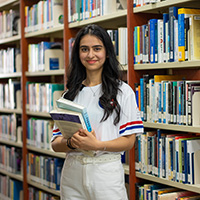
Bin Haider Advocates & Legal Consultants
Deloitte & Touche
Etihad Airways
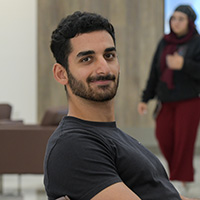
Sharjah Commerce & Tourism Development Authority
Ministry of Foreign Affairs

UNHCR (The UN Refugee Agency)
The Emirates Center For Strategic Studies & Research
Hear from our students and alumni
Connect with us
Contact
For more information about our department or programs, please contact us:
Department of International Studies
College of Arts and Sciences
American University of Sharjah
P.O. Box 26666
Sharjah, UAE
Department Head
Dr. Yuting Wang
Tel +971 6 515 2522
Fax +971 6 515 5067
[email protected]
Administrative Assistant
Ghazal Mahmoud Hijazi
Tel +971 6 515 2823
Fax +971 6 515 5067
For admission information, please visit https://infodesk.aus.edu, sign up and post your query.


